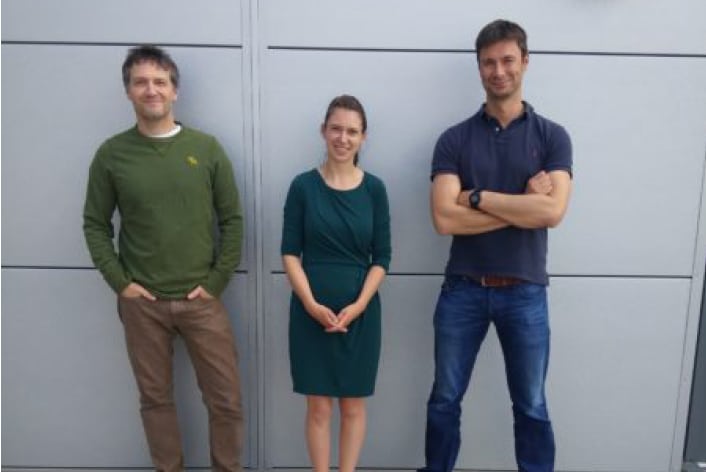The 3-Sci team have deep experience in research and product development, in engineering the physical sciences, gained over many years of activity in energy, medical and defence sectors.
We spoke to Technology and Account Director, Dr Mark Maylin to see how the company was started, what they are currently working on and how they are finding Fareham Innovation Centre so far.
Some of their key specialisms include the creation of novel sensors and actuators, non-destructive evaluation, corrosion and its prevention, metallic and non-metallic materials developments, unique communication systems for difficult environments on land, sub surface, underwater and air-borne, explosives design, test and mitigation, computer-based predictive modelling, software and electronics design and manufacturing. Much of their work leverages phenomena in acoustics, electricity and electromagnetism.
3-Sci Ltd is comprised of a group of people who have been working together for many years – decades in some cases. Over the years, the team has built up quite a lot of experience in developing new engineering and scientific technologies from ‘inception’ right the way through to field prototypes and manufactured products. So, it was always the natural way of things that the Company would be formed to continue to give us all the opportunity to just get on and do in 3-Sci, what we have been doing for many years now – working together as a close-team with complementary business, scientific and engineering skills. There is a lot to be said for working in an environment where you know your work colleagues very well and are able to have great trust in their professional skills and not least, personal behaviors.
2. What are you working on at the moment?
We have several core themes of activity ‘on the go’ at any one time. We focus on making new sensors, new communication systems and on how to ‘look after’ engineering structures using autonomous devices that we create. Overall, we like to think of our work as a ‘conveyor belt’. At one end of the conveyor belt are the new innovations coming on-line – projects which usually run for a few years, through which we are trying to create a new technology which can solve a problem that has so far not been solved. This means a lot of ‘brain-storming’ of a specific problem, deep theoretical assessments and extensive laboratory tests to check a new idea and invention will work. At the other end of the conveyor belt are the manufactured products and services being delivered to customers around the world. In the middle of that conveyor belt are months of hard graft – executing field trials, getting product certifications, soak-testing hardware and software and setting up a suitably-qualified supply chain. And Sales and Marketing of course. So, right now, we have our mature product electronic devices (radio frequency communication systems reporting corrosion of metallic structures) being delivered around the world – predominantly to oil wells and petrochemical process plants, whilst we are also in the labs and through theoretical assessments, incubating for example, new technical solutions for checking the structural integrity of offshore wind turbines and new solutions for monitoring the performance of oil and gas well-heads. For a business like ours, its critically-important to be outward-facing, so we also spend much of our time working with partners and customers. For example, we’ve been working hard at establishing our overseas presence, not least for through having robust, professional partners in the Middle East.
3. What do you like about Fareham Innovation Centre (FIC)?
It’s a clean, beautiful building, professionally run, with great flexibility with respect to the office space and workshop space we occupy. We get the added benefits of a professionally-manned, helpful, ‘front desk’. It’s incredibly important for our business that we have this hassle-free premises – we’re not wasting any important time or effort dealing with building maintenance, or negotiating with difficult landlords. Prior to arriving at Fareham Innovation Centre, the team occupied a modest-sized industrial unit in north Hampshire – and always had the dark cloud hanging over us of needing to spend a valuable portion of our time worrying about the building, the surrounding land and the repair and maintenance obligations to and of the landlord. At FIC, we are 100% free to just get on with our business in a well-looked after environment.
4. What projects/ambitions do you have for the future of your company?
To grow, create more jobs, make some money and have the fun and freedom that should come from running our own enterprise. We intend to do this by making a success of the work activities described earlier. If we get a few years down the line from now and 3-Sci is selling many millions of £s worth of goods and services around the world, we’ll feel that we achieved what we set out to do. Many people know unfortunately, how working life can sometimes not be as ‘uplifting’ as they wish it to be – so at all times, we want to make sure that we don’t lose the ‘fun’.

